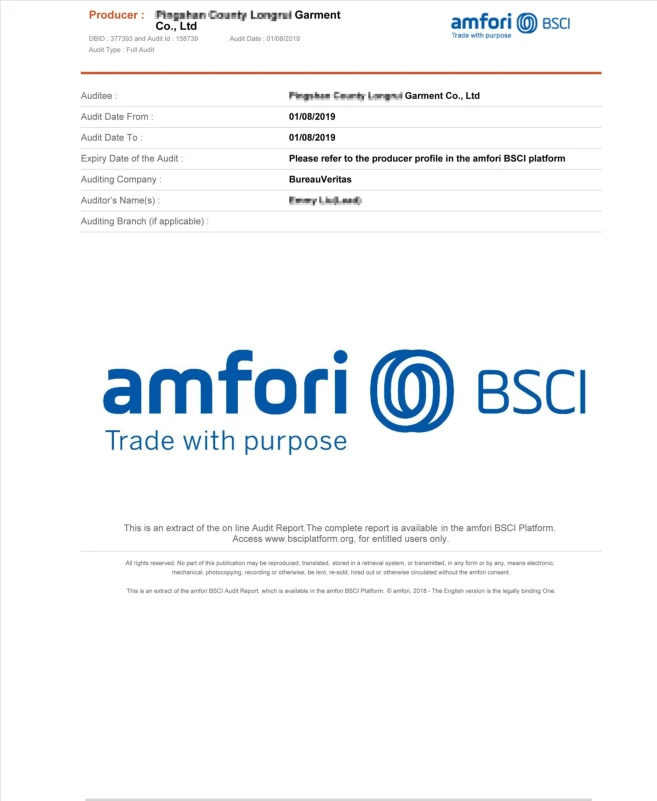 rainwears@163.com may@may-rain.com
rainwears@163.com may@may-rain.com Mon to Friday: 8.00 am - 7.00 pm
Mon to Friday: 8.00 am - 7.00 pm
Advantages of Using Disposable Protective Gloves in Various Industries
The Importance of Disposable Protective Gloves in Today's World
In recent years, the demand for disposable protective gloves has surged, becoming a crucial aspect of personal protective equipment (PPE). These gloves are widely used across various industries, including healthcare, food service, and cleaning. Their importance cannot be overstated, especially in today’s global context, where health and safety have taken center stage.
Understanding Disposable Protective Gloves
Disposable protective gloves are typically made from materials such as latex, nitrile, or vinyl. Each material offers distinct advantages, catering to different needs and preferences. Latex gloves are known for their elasticity and comfort, making them ideal for medical professionals who require dexterity and precision. However, some individuals may have latex allergies, which makes nitrile gloves a preferable alternative due to their hypoallergenic properties. Vinyl gloves, although less durable, are often used in low-risk situations, such as food service, due to their affordability.
Applications in Healthcare
In the healthcare sector, disposable gloves play an integral role in infection control. Medical professionals use them during examinations, surgeries, and when handling bodily fluids to prevent cross-contamination. The COVID-19 pandemic underscored this importance, as healthcare workers relied heavily on disposable gloves to protect themselves and their patients. The use of these gloves has become standard protocol in hospitals and clinics, contributing significantly to reducing healthcare-associated infections (HAIs).
Moreover, the proper disposal of these gloves is essential to maintain hygiene and safety. Healthcare facilities have strict guidelines for the disposal of contaminated gloves, ensuring that they do not contribute to the spread of infections. This highlights the need for not only the use of protective gear but also for an understanding of proper disposal methods.
Role in Food Safety
The food service industry also relies heavily on disposable gloves to maintain hygiene and prevent foodborne illnesses. Food handlers are required to wear gloves when preparing food to minimize the risk of contamination from their hands. Different types of gloves are suitable for various tasks; for example, thicker nitrile gloves may be used for raw meat preparation, whereas thinner gloves may suffice for handling ready-to-eat foods.
protective gloves disposable

By using disposable gloves, restaurants and food vendors not only adhere to health regulations but also build consumer trust. Customers are more likely to patronize establishments that prioritize hygiene practices, including the use of gloves by staff. This practice of wearing gloves has become an expectation rather than an option in the food service industry.
Impact on Cleaning and Maintenance
The cleaning industry has also embraced the use of disposable gloves as a best practice. Professional cleaners often face hazardous substances, and gloves provide a protective barrier against chemicals and germs. Disposable gloves allow cleaners to perform their duties without the risk of contaminating themselves or spreading pathogens to other surfaces.
Furthermore, the ease of disposal ensures that cleaners can maintain high standards of hygiene, especially in environments such as schools, offices, and public restrooms where cleanliness is paramount. By using disposable gloves, cleaning professionals can feel secure in their efforts to protect themselves and others from contamination.
Environmental Considerations
While disposable gloves are essential for safety and hygiene, the environmental impact of their widespread use cannot be ignored. The increase in plastic waste from disposable gloves has raised concerns about sustainability. As consumers and industries become more environmentally conscious, there is a growing interest in biodegradable or recyclable glove options. Manufacturers are now exploring eco-friendly materials and production methods to address these concerns while still providing effective protection.
Conclusion
The use of disposable protective gloves is vital across various sectors, particularly in healthcare, food service, and cleaning industries. They serve as a first line of defense against contamination and infection, ensuring the safety of both workers and the public. As we continue to navigate challenges related to health and hygiene, the importance of disposable gloves will likely remain steadfast. The future may also bring innovations that balance the need for safety with environmental sustainability, paving the way for new materials and recycling methods. Ultimately, disposable protective gloves symbolize a commitment to health, safety, and responsible practice in our daily lives.
-
Children's Fashion Waterproof Printed Raincoats | Kids Gear
NewsJul.31,2025
-
Silver Printed Women’s Jacket – Stylish, Lightweight & Trendy Outerwear
NewsJul.30,2025
-
Fashionable Design Long Raincoat Rain Poncho Waterproof Polyester
NewsJul.30,2025
-
High Lighting Reflective Rain Jacket Windbreaker Safety Jacket for Adult
NewsJul.29,2025
-
Disposable PE Rain Poncho - Lightweight, Waterproof, Easy to Carry
NewsJul.29,2025
-
Stylish Lady Coat Women Jacket – Trendy & Elegant Outerwear
NewsJul.29,2025































